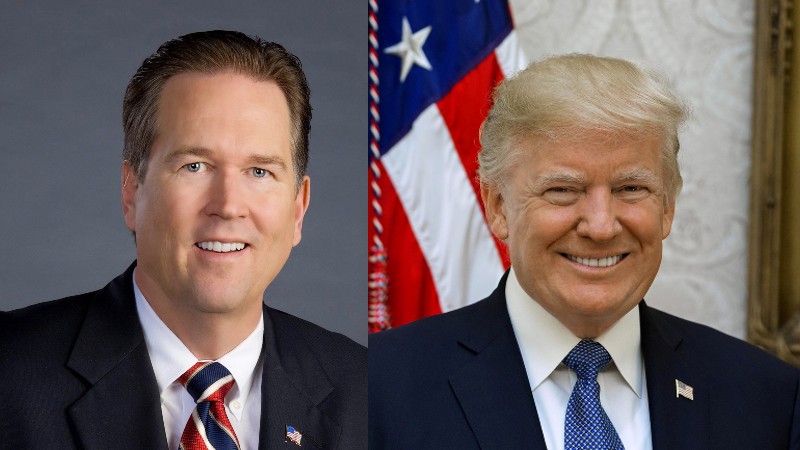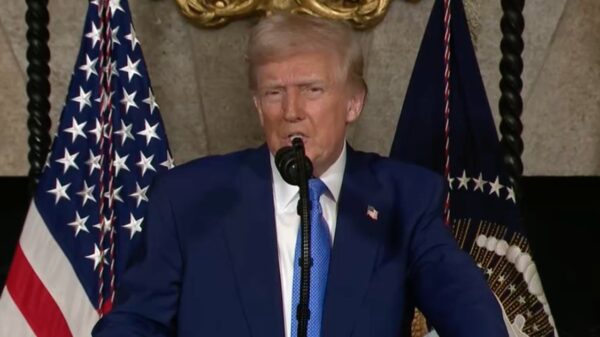Last week, U.S. Rep. Vern Buchanan doubled down on his proposal to make tax cuts enacted by the Trump administration permanent, noting that the Tax Foundation and Americans for Tax Reform found it would benefit most Americans.
When he introduced the “TCJA Permanency Act” last month, Buchanan noted 23 different tax cuts from the “Tax Cuts and Jobs Act (TCJA)” signed into law in 2017 will end after 2025.
“In 2017, Republicans delivered the most comprehensive overhaul of the U.S. tax code in more than three decades and achieved historic economic growth,” said Buchanan, who sits on the U.S. House Ways and Means Committee. “Under the leadership of Leader Brady, we delivered historic tax relief to low and middle-income families and small businesses across all income levels. With Americans continuing to suffer under the weight of record-high inflation and an uncertain economic future, we need to provide some much-needed relief and certainty to hardworking families and ensure these tax cuts do not expire.”
Buchanan rounded up U.S. Rep. Kevin Brady, R-Texas, who leads Republicans on the Ways and Means Committee, U.S. Rep. Jim Banks, R-Ind., the chairman of the Republican Study Committee; U.S. Rep. Scott Perry, R-Penn., the chairman of the House Freedom Caucus, and U.S. Rep. David Joyce, R-Ohio, the chairman of the Republican Governance Group to cosponsor the proposal.
“Unlike the cruel economy of President Biden, under the modernized Republican tax code of 2017 America’s economy was growing, paychecks were rising twice as fast as inflation, jobs were coming back from overseas, millions of Americans were lifted out of poverty and communities enjoyed record business investment here in America. Making the historic Tax Cuts and Jobs Act permanent will lock in low taxes for families and small businesses struggling with record inflation, and create certainty for the pro-growth provisions that leapfrogged America to the most competitive economy in the world,” said Brady.
According to Buchanan’s office, the proposal:
Permanently lowers tax rates for individuals and families, allowing Americans at every income level to keep more of their hard-earned money
Preserves the 20 percent deduction for small businesses, ensuring taxes won’t go up on Main Street businesses, which employ nearly half of the U.S. workforce
Maintains the higher standard deduction, increasing the amount of tax-free income a middle-class family can earn
Locks in the doubled child tax credit, further encouraging workforce participation
Permanently simplifies the tax filing process, allowing 9 out of 10 Americans to get the full benefit of tax deductions without the headache of tracking receipts or itemizing
The bill “also includes a number of important updates to a previous iteration of this bill, including several technical fixes and expanded eligible uses of 529 savings plans to help parents and students.”
Buchanan pointed to the support the bill has garnered from the Tax Foundation and Americans for Tax Reform.
“Initial estimates from the nonpartisan Tax Foundation show that a single mother of two earning $52,000 would face a $1,500 tax hike in 2026. For a married couple with two children and $85,000 in income, the additional tax bill would be over $1,700 per year,” Buchanan’s office noted.
“This startling new information from the Tax Foundation makes crystal clear the need to permanently lock in these low tax rates,” said Buchanan. “As American families and businesses across the country are struggling to make ends meet in Biden’s cruel economy, the last thing they need is a looming tax hike.”
Buchanan also noted that Grover Norquist from Americans for Tax Reform is backing the bill.
“This bill makes it clear that protecting the pro-growth tax cuts passed in 2017 remains a top priority for Republicans when they take back Congress,” Norquist said. “The TCJA Permanency Act will help right the ship and get the American economy growing again.”
Buchanan’s proposal was sent to the Ways and Means Committee. With Brady retiring next year, Buchanan hopes to become the next chairman of the committee or the GOP leader on it. So far, there is no companion measure in the U.S. Senate.
Almost 40 co-sponsors, all on the GOP side, have lined up behind the bill, including Florida Republican U.S. Reps. Kat Cammack, Neal Dunn, Brian Mast and Maria Elvira Salazar.




















